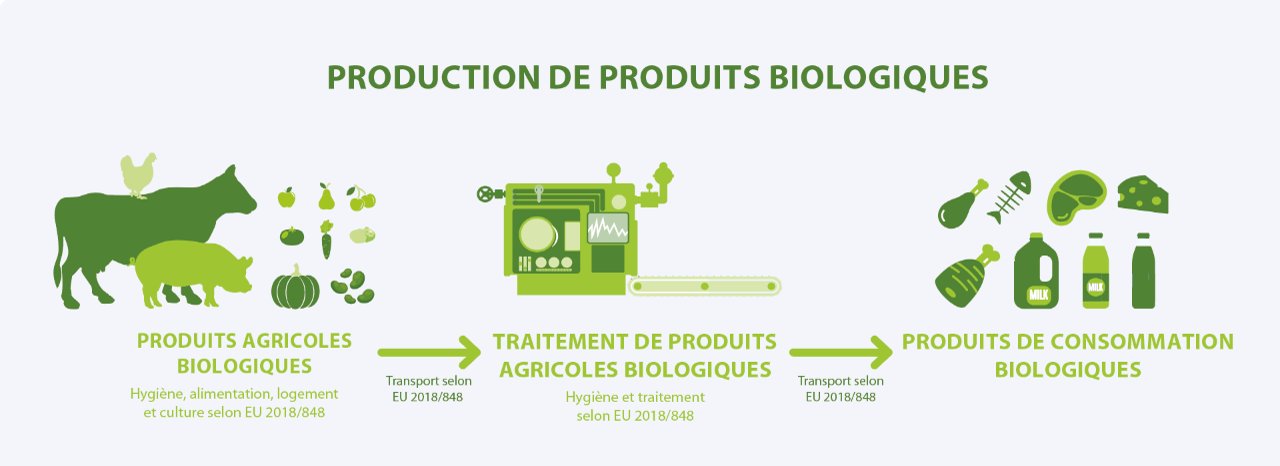Organic production and processing

Organic production is an agricultural method that aims to produce food using natural substances and processes.
This means that organic farming generally strives for the lowest possible environmental impact.
European Union (EU) regulations on organic production:
• Basic Act: Regulation (EU) 2018/848 OF THE EUROPEAN PARLIAMENT AND OF THE COUNCIL of 30 May 2018 on organic production and labelling of organic products and will repeal Council Regulation (EC) No 834/2007
• Transitional measures for cleaning and disinfection products: Implementing Regulation (EU) 2021/1165 of 15 July 2021 authorising certain products and substances for use in organic production and establishing their lists
Basic principles
Production
-
Free from GMOs
-
Prohibit the use of ionizing radiation
-
Restriction on the use of fertilizers, herbicides and pesticides
-
Free from hormones and antibiotics unless needed for animal health
Processing
-
The separation between processed organic products and non-organic products
-
A minimum organic content of 95% organic agricultural ingredients and strict conditions for the remaining 5%
-
Clear rules for labeling and on which products on biological logo may or may not be used.
-
Specific limits for substances that can be added to food and feed and a limited list of approved additives and processing aids that can be used in organic production
Key principles for CID LINES, an Ecolab company
As a producer of inputs* for BIO-farming and the organic food chain
CID LINES, an Ecolab company wants to offer a series of “BIO-compliant” products.
This goal resulted in:
-
A selection of “BIO” compatible products within the existing product ranges.
This selection is made according to the restrictive lists for raw materials and meets the critical dilution values if used according to the recommended concentrations. -
New and reformulated products.
These products ensure that the customer fully complies with the latest clean and disinfect bio-standards.
*Inputs: materials which may be used in agriculture or food processing, that are not subject to certification themselves. This includes, for example, fertilizers and soil conditioners, substrates, plant protection products, cleaning agents and disinfectants, feed materials and feed additives, food processing aids.

German, Austrian and Swiss control body for the production of organic products.
Approval by considering legal requirements as well as scientific criteria:
-
Regulation (EU) 2018/848 and Implementing Regulation (EU) 2021/1165
-
Prohibited substances
-
Critical dilution volume of the EU Ecolabel system
Dutch control body for the production of organic products.
Approval according to Regulation (EU) 2018/848 and Implementing Regulation (EU) 2021/1165
French control body for the production of organic products.
Approval according to Regulation (EU) 2018/848 and Implementing Regulation (EU) 2021/1165 Lists products as “Suitable for organic farming”
The evaluation and the listing of inputs for organic agriculture is a basic instrument for control bodies and certifiers to do the control work on the organic production sites and a reliable inspection of the used products.



